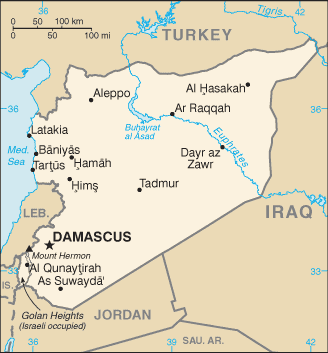As the Syrian military continues to push its offensive around Damascus, surrounding rebel-held suburbs and sieging them, two new deals were made this weekend to see rebels evacuated out of those areas and given passage further north.
 The evacuations saw rebels agreeing to hand in their heavy weapons to the government before getting passage to the north. The larger of the two areas was the Palestinian refugee camp of Khan al-Shih, in which an estimated 12,000 people live.
The evacuations saw rebels agreeing to hand in their heavy weapons to the government before getting passage to the north. The larger of the two areas was the Palestinian refugee camp of Khan al-Shih, in which an estimated 12,000 people live.
Perhaps the more unique deal was in al-Tal, however, as while the deal will see the armed rebels all evacuated from the area, the military has agreed not to enter the town even after this so long as the area remains free of heavy weapons in the future.
Syria has completed several previous deals in the area, as the once significant collection of rebel territory around Eastern Ghouta has shrunk, and the government could soon find itself without major rebel presences anywhere immediately around the capital city’s metro area.
At the same time, all these deals are shipping large numbers of rebels into the Idlib Province, already controlled by al-Qaeda’s Nusra Front. This appears to be greatly increasing the size of their coalition, and reducing the chances that this area will be recovered militarily any time soon.


